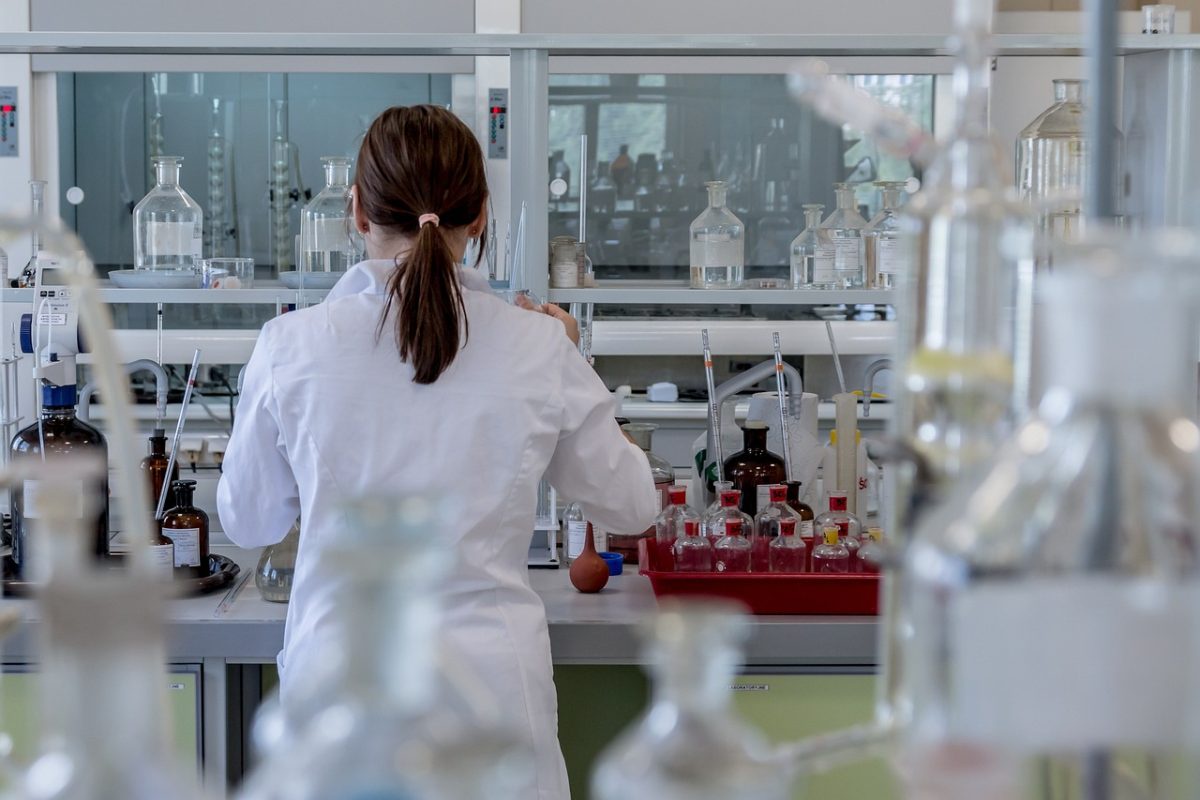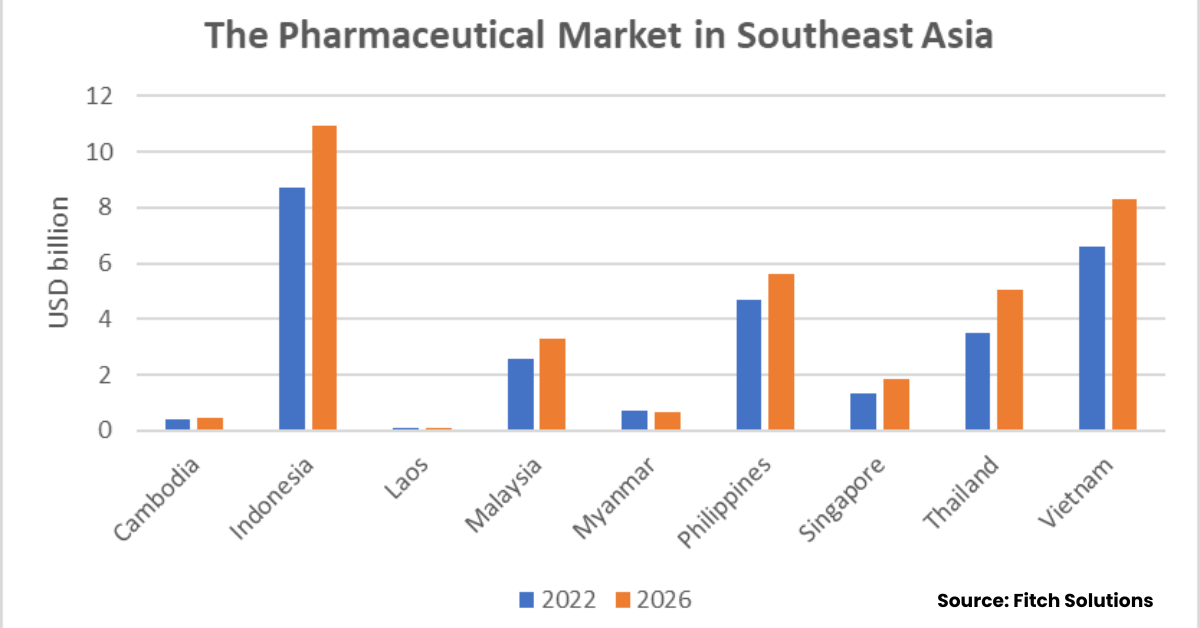The wholesale drug distribution network in Thailand involves both public and private sectors. The Government Pharmaceutical Organization (GPO) plays a significant role, producing a wide range of pharmaceuticals and medical supplies, including tablets, capsules, solutions, and syrups. These products are distributed through a network that includes hospitals, public health clinics, drugstores, and village drug funds.
In the private sector, pharmaceutical companies typically distribute their products through third-party distributors such as Zuellig Pharma Ltd., a Philippine-based firm, as well as DKSH Holding Ltd., BJC Healthcare Co., Ltd., and Pacific Healthcare Co., Ltd., all of which are prominent players in Thailand's pharmaceutical distribution landscape.
On the retail side, most pharmacies in Thailand are independently operated. However, chains like Watsons, Boots, and Pure Pharmacy have a strong presence, with 700, 260, and 148 stores respectively, specializing in OTC product distribution.
E-commerce opportunities for pharmaceuticals are limited by legal restrictions, which allow only household remedies to be sold online without the involvement of a pharmacist. Additionally, cross-border e-commerce is prohibited, as all medicines sold in Thailand must be registered with the Food and Drug Administration (FDA) and imported by licensed operators.
While Traditional Chinese Medicine (TCM) has a long-standing history in Thailand, its market remains relatively small compared to other drug categories. Notable players in this sector include Vejpong Pharmacy (Hock Ann Tung) Co., Ltd. (Vejpong Osot), which collaborates with Beijing Tong Ren Tang (Thailand) Co., Ltd. Despite their efforts, Vejpong Osot has seen a decline in sales, and Beijing Tong Ren Tang's sales have stagnated from 2020 to 2022. Conversely, Enwei Group Co., Ltd., an importer of its own TCM products from China, experienced a threefold increase in sales during the COVID-19 pandemic, rising from THB 52 million in 2020 to THB 180 million in 2022.
Several Thai pharmaceutical products have the potential to succeed in international markets, particularly in China. These include modern medicines from companies like Thai Nakhon Pattana Co., Ltd., Bangkok Lab and Cosmetics PCL., and Inter Pharma PCL., which are key players in the Thai market. Traditional products such as Wang Prom Balm, Poy-Sian inhalers, and Hatakabb (cough medicine) are also popular among foreign tourists and could find a market abroad.
Key success factors for pharmaceutical products in Thailand include strong brand awareness among consumers and acceptance by medical doctors, who play a crucial role in recommending both general and restricted drugs to hospitals. In the pharmacy sector, a notable practice is the return of drugs with a shelf life of less than six months, which are then replaced with drugs of longer shelf life. For distributors, products that offer higher margins and display innovation tend to attract interest. In the hospital sector, drugs with higher efficacy, robust clinical trial results, and strong research backing have a better chance of being selected for use.
Thailand Pharmaceutical Industry, according to Fitch Solutions, the pharmaceutical market in Southeast Asia has a market size of USD 28.58 billion in 2022. Thailand is ranked fourth in SEA in terms of market size of USD 3.49 billion or THB 124.297 billion growing by 5.68% y-o-y in THB terms.
Domestic companies in Thailand have the capability to produce only a small range of generics and over-the-counter medicines. Hence, the country relies heavily on the import of patented medicines from developed countries and generics from prominent producers such as India. EMIS Insights reported that 61% by value of medicines distributed in hospitals were generics while another 39% were patented medicines.
In 2022, Thailand's domestic production of medicines amounted to 47,837.70 tons, utilizing 61.52% of its full capacity of 77,762.35 tons. The majority of these medicines, totaling 41,081.51 tons, were sold within the domestic market, with exports accounting for 5,156.89 tons. This production led to total sales of THB 23.65 billion, marking an 18.21% year-over-year increase. The growth in 2022 was largely driven by the demand for COVID-19-related symptom remedies, including fever relievers, painkillers, cough medicines, and anti-inflammatories, as reported by the Land and House Bank.
In 2023, Thailand saw its medicament imports rise to THB 87.48 billion, a 9.31% y-o-y. However, imports of other medicinal and pharmaceutical products fell by 30.67% y-o-y, totaling THB 46.85 billion. Additionally, the country imported vitamins and hormones valued at THB 4.20 billion and THB 1.82 billion, respectively. Contrastingly, pharmaceutical product exports declined by 2.93% to THB 21.24 billion. From 2018 to 2023, pharmaceutical exports experienced a CAGR of 3.50%, while medicament imports grew by 3.56% CAGR. Notably, major international pharmaceutical companies like Novartis, Roche, Pfizer, and Merck have established their presence in Thailand. Some of these companies focus on importing patented medicines for the local market, while others have set up manufacturing facilities within the country to produce and export medicines to neighboring regions.
The Thai pharmaceutical industry is expected to reach THB 155.71 billion by 2026, growing at a 5.79% CAGR from 2022 to 2026. This growth is supported by the increasing demand for healthcare services and products due to an aging population, along with the expansion of government healthcare programs covering more treatments and medicines. The pharmaceutical market is expected to expand by increasing medical tourists attracted by the government's policy to center Thailand as a medical hub. However, the sector may face challenges due to the slow recovery in the economy, investment, and tourism.
Source: Solister PR

